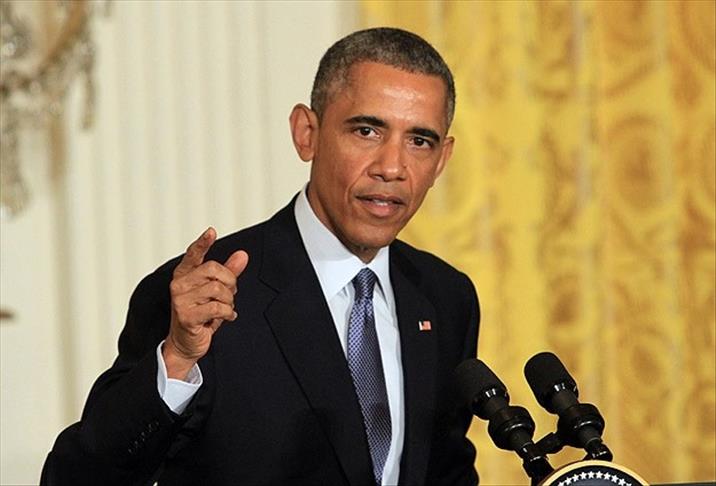
By Kasim Ileri
WASHINGTON
U.S. President Barack Obama's has named unrest in Venezuela as a "national security threat:" But is this a policy shift, as some experts claim, or just different jargon?
Obama on Monday issued an executive order placing sanctions on seven Venezuelan officials, freezing all their assets, banning their entry to the U.S. as well as prohibiting business with them.
In the executive order, he termed the unrest in Venezuela as "a national emergency with respect to the unusual and extraordinary threat to the national security and foreign policy of the United States."
Although the administration dismisses such a characterization, some American analysts and observers said that Caracas has replaced Havana as the principal foe of the U.S. in the Latin America.
On the other hand, others said that the language is symbolic or statutory, as it does not reflect reality with respect to the small Latin American country.
As Venezuela has been rocked by anti-government protests due to the deteriorating economic and political conditions, Venezuelan President Nicolas Maduro blamed the U.S. for supporting an alleged plot by Caracas Mayor Antonio Ledezma, who was recently arrested.
Maduro also announced a number of measures targeting the U.S., including compulsory visas for all U.S. travelers and a ban on certain officials, including former President George W. Bush, besides reducing the number of diplomatic staff permitted at the U.S. Embassy in Caracas.
The executive order came shortly after the move by the Maduro regime, and spurred the White House actions.
Indeed, Venezuela's standing as a foe of the U.S. is longstanding, as old as that of Cuba, so some analysts say the change of language is only a legal requirement.
Defining Venezuela as a "national security threat" to the U.S., is symbolic, said Ryan O’Regan, an expert on the Americas at the Council on Hemispheric Affairs based in Washington.
"I don’t think that anyone in the administration actually believes this," he added. "It has more to do with providing a legal basis for further sanctions on Venezuela, because once it has that official status, it becomes easier for the administration to impose financial or trade sanctions on the regime."
American law requires the president to use specific expressions to enable specific actions, according to Washington-based Brookings Institute senior fellow Harold Trinkunas.
"A national security threat from Venezuela is required for Obama to impose the sanctions. This language is derived from the International Emergency Economic Powers Act," Trinkunas said. "Without using those specific statements, President Obama cannot use this Act."
In order to place sanctions on Venezuela the Congress passed the Venezuela Defense of Human Rights and Civil Society Act, a law that was approved in December 2014.
Other analysts said that the threat from Venezuela is real.
"We are going to see a regime there which has become increasingly repressive and aggressive, in a position to sort of replicate what Cuba used to do," said Ambassador Roger Noriega, a former assistant secretary of state for Western Hemisphere Affairs and a senior fellow at Washington based American Entrepreneurs Institute.
According to Ambassador Noriega, Washington also sees Venezuela as a potential cause of instability in the region besides undermining the U.S. role in the hemisphere.
"It is a substantial threat that this lawless, illegitimate regime is operating with impunity and sends a message to the rest of the countries in the region that the U.S. will stand by and let this happen," he said.
Venezuela is not comparable to Cuba in terms of its influence in the region and does not have the decades-long hostility to the U.S., the former senior diplomat said. Cuban leadership may influence Maduro as he was educated in Cuba and has been well-supported by the Castro regime for his anti-American sentiments.
Maduro got full support from the long-standing retired Cuban leader Fidel Castro for his standing against the U.S. sanctions as well as "unconditional support" from the Cuban government.
In a message to Maduro for his speech slamming the new U.S. sanctions, Fidel Castro wrote: "I congratulate you for your brilliant and brave speech in the face of the brutal plans by the United States government."
"Your words will go down in history as proof that humanity can and will know the truth," he said.
Anadolu Agency website contains only a portion of the news stories offered to subscribers in the AA News Broadcasting System (HAS), and in summarized form. Please contact us for subscription options.







